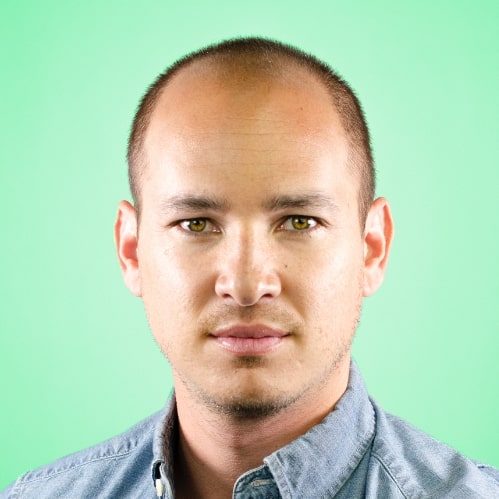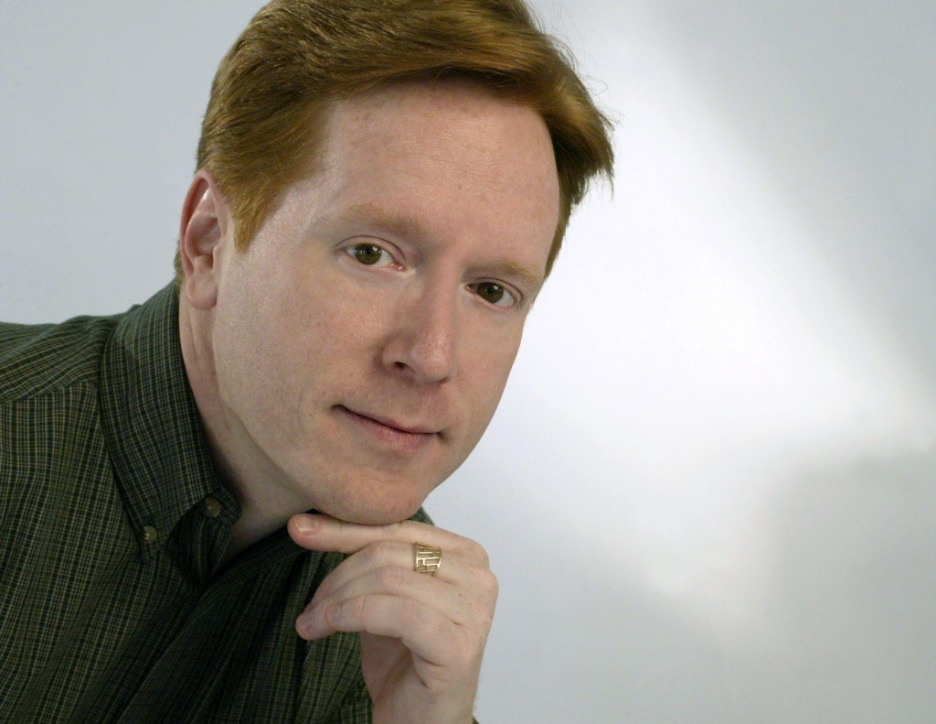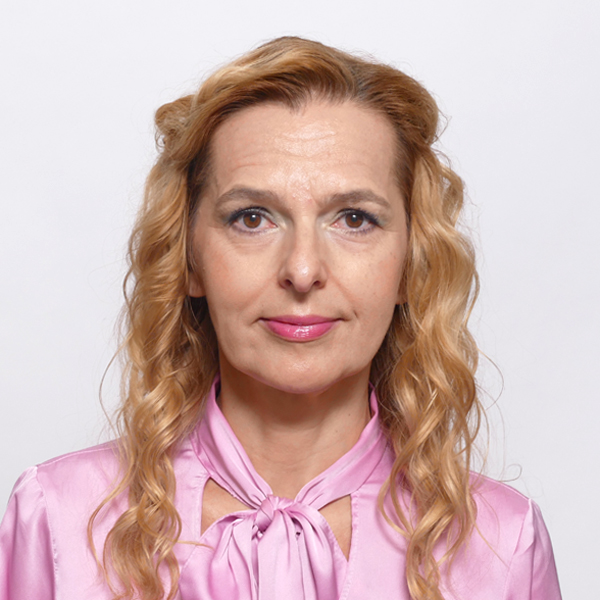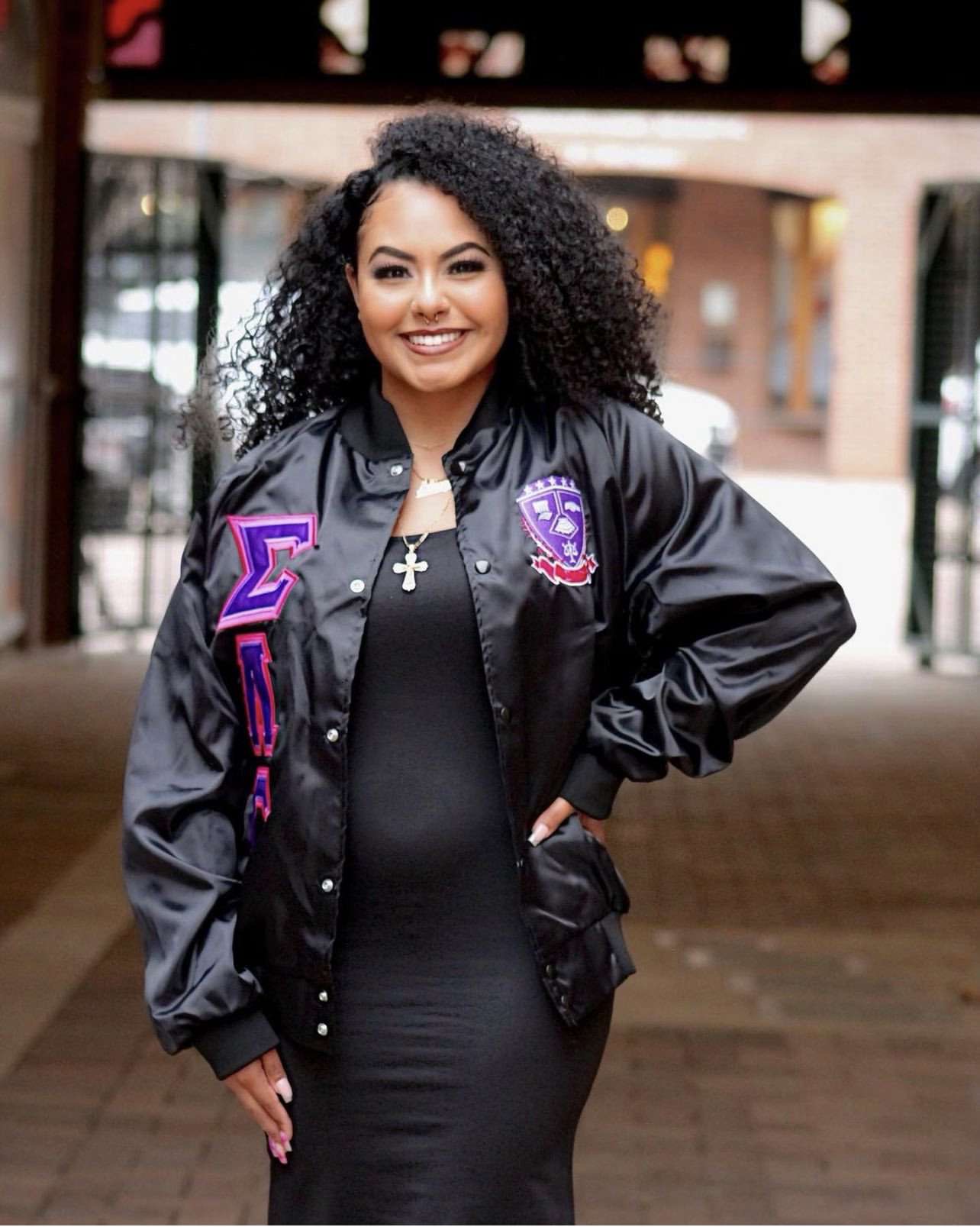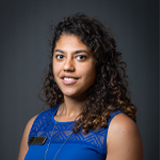
Student Success Coach, Hayley Blackburn, discusses her role and vision to providing support and resources for all UNC students.
Hi I'm Hayley Blackburn and I am a student success coach in the student success resource center in the college of humanities and social sciences.
Why did you want to get into coaching student success?
Yeah, so one thing that's really important to point out is the distinction between coaching and academic advising. In HSS we have the coaching model. So myself and Rebecca Young, another coach here in the office. We really look at students in a very holistic way. While advisors also do that, there's more emphasis on specific like academics, course selection, giving out PINs. Here in the center with our coaching model, we are a lot more focused on, 'what are some of the root causes with the grade that you just got on that exam' or 'how is your time management and how did you set up your schedule?' 'Are you interested in clubs or organizations?' So I was ultimately interested in applying for this coaching position because of that sort of flexibility and a little more nuance and interaction that comes with the coaching model. Not having to spend the entire session really focused on, 'okay, here's the classes you need next semester.' That is an incredibly important part for the student experience, but we in HSS, we send them back to their faculty because the faculty are the experts in those classes that they need.
I get to focus more on other, what I think are really fun conversations about, you know, setting up ABC productivity time or just talking about even their roommate and how that's going or impacting class and just broader conversations.
Yeah, like their lifestyles and things that come off campus.
Exactly. Yeah, we like to talk about events around campus as well as events in Greeley and even Denver. Just making sure students are aware of all that the college experience has to offer inside and outside of class, which I have always been just really into and inspired by like when I was a student, I quickly recognized that class is awesome. I was one of those nerds that loved class. Even if it was my elective classes, I was really into it. But what I really appreciated the most was what I got to learn just being around campus and learning about myself and getting to sit in on meetings or internships and all the other pieces of college besides taking classes and getting the major.
Did you have a coach?
I did not. Yeah. Great question. So I went to Colorado State University, which I had a great experience, it's just a lot bigger, right? And so I didn't have the opportunity for some of that more personalized attention or the coaching experience that we get to offer here at UNC, which I think definitely shaped my experience a bit. I've always been a really proactive, high achieving student. But I do wonder if I could have figured out some of these things that ultimately took me into graduate school to understand just about myself and productivity and just the type of student that I am. Maybe I could have figured that out as a sophomore if I had had that coaching support. So that's what I tried to bring to the students I meet with anyway. Cause I think that would have been helpful.
So then what did draw you to a position like this?
Yeah. Uh, so, and I definitely told this story during my interview, but it's for real! So at CSU as a grad student, I taught and was a TA for our JTC 300 course, which was all about like resumes and memos and business communication. And one of the assignments I created for my students was to build their dream position. So one, they're practicing writing position descriptions and then we used what they wrote to compare it to their resume to show them how prepared they were for their dream job. And so I did it with the students as well. And the dream job that I created, I identified how I wanted to be—I called it a Growth Leader for a company or organization. And some of the key things were recognizing where growth opportunities and potential were, strategizing to help implement some of these growth opportunities, and it's really focused on event planning, and sort of building relationships with people. And so those were all the skills that I knew I wanted plus to have a flexible schedule and an environment that was really inclusive and open. And when I came across the position for the success coach over the summer, I was like, 'Oh my gosh, this is the exact position that I wrote myself!' You know, the terminology is different, but at the core, it's like, 'Yes, my job could be helping individuals find where they can grow and benefit and plan events and what's more inclusive and awesome than a college campus?' I just always wanted to contribute in that way.
Yeah. And it sounds like you're really personable with the students that come in. What have some of the patterns been of, of being a coach that you've seen among UNC students?
One pattern that I've noticed, and this is, I think be indicative of just the amount of first gen students we have at UNC. I do spend a lot of time just explaining some terminology as well as resources on campus. I notice a lot of students don't realize like that tutorial services are free or they don't understand how helpful and awesome it is. And so I notice a trend of students kind of coming in and feeling like if they go to tutoring, that it's a bad thing, that they can't get it. And so I've been trying really hard to reframe all of our services, our writing center, tutoring, the math biochem lab as a place where you can just slow down, review the material because we all know lecture goes way too fast. And that's usually a head nod from them as well, like, 'Oh yeah, it does go too fast.' And I say, 'there's these resources that will slow it down just so you can review it.' So that's definitely one big trend.
The other main thing that we talk about would be just figuring out what their best work time is. And so that's where I go through the ABC time.
What does ABC time?
I was just going to ask if you knew your ABC time.
I definitely don't.
So ABC productivity time was introduced to me as a grad student in a couple of different classes. Specifically when it came to like freelance work for journalists. The whole concept is A Time is your intrinsic, like your most productive hour. So when I am meeting with a student, I explain it as, 'okay, what two to four hours during the day do you know you're doing everything better?' If you're watching TV, you're really watching TV. If you're reading, like you're reading quickly, you understand it. If you're cooking food, it's the best meals you've ever cooked. So no matter what you're doing, like you're on point. That's A time. And then we write down, okay, B time is sort of the baseline productive hours and then C time is really where I think students kind of, it flips a little switch for them. C time are the two to three hours in the day where it's like the no fly zone. It's just a struggle no matter what you're doing.
After lunch, I'm in a carb coma.
Exactly. And so helping them recognize when we go through this. Okay, C time, we're not going to schedule classes next semester and often, a common C time would be in the mornings, right after lunch, or in the evenings. And so I see a lot of students have attendance issues during their 9:00 AM and then talking with them, realizing, Oh, that's because you're not a morning person. Give yourself some permission to not schedule this class during your C time. Let's focus more in the afternoon where you're more productive. And I think that's really important. And usually they're like, what? I've never thought about that.
Yeah. I actually just had that conversation recently about when am I most productive? But I mean, that's been, well after my undergraduate years, so I wish I would've had an idea of 'let me schedule these times and these classes' and at least focus my priorities a little better. Perhaps shift them around. And going back to you're comment about first gen - I'm a first-gen and I remember having questions but not even knowing who to ask or what to ask. So I go up to someone and kind of be like, 'I need the, uh, paperwork.' And then they have to stare at me and I have to stare at them for a little bit... And just to know exactly how to navigate all of the different options as well as like what you need to do on campus can be overwhelming. So they all come to you - Do they have to schedule? Or is this just like a drop in?
Both. So Becca and I send out invitations through bear mail and that links to our online sort of scheduling portal, definitely a popular option. It shows our calendar and they can just pick one. Usually, we schedule like half an hour appointment slots. That's one option we definitely encourage just to make sure that we're here and available. But students drop in all the time as well. And we've had a really, really great, and are so appreciative of the faculty that will walk students even down to us or recommend them or send us an email so we can reach out to the students. So yeah, it's kind of both. They'll come in or they'll make appointment. I actually, and this always surprises me - I talked to students on the phone quite a bit more than I thought that I would. Sometimes they'll call to reschedule or even to schedule an appointment. But also if a student had one on the books and they don't show up, I'll give them a call and often end up chatting with them for, you know, a few minutes and either rescheduling or just talking about the things we needed to talk about. Which has been kind of interesting. Every time my phone rings I'm like, 'Whoa, I can't believe it!'
definitely a few things that we've kicked around the office I think would be really helpful is increasing some of the events. So we were able to hold two sort of little events for HSS students. One was the Waffle Welcome, which isn't technically just for HSS. I mean, even our services here should clarify, while we do outreach and directly serve HSS majors and minors, any student is always welcome to come in and talk with them. And sometimes we'll call over to whoever their advisor is. I've worked with some students in HSS classes like the LACs that just are having a hard time sort of figuring out what we need and look for to be successful in humanities or social science class. So just need to make sure everyone knows that. But yeah, so we had a Waffle Welcome event that was really fun and we just gave everybody waffles. We had the women's basketball team help us out with some of the waffle cooking and sort of pushed our new newly launched Twitter and Instagram handles as well as reminded students about their Drop Deadline. That was really fun event. We would love to do something like that more often.
We had another workshop that Becca led that really focused on helping students identify different learning strategies. And so going over that there are more options than just rereading your notebook and helping them understand like there are ways we can learn and study and more visual patterns and maybe we draw a comic book strip of the concepts and the philosophers that you learned in class. Or maybe we get a little bit more physical in our learning and walk around the room or go explore campus to find examples of what you talked about in class. And so that was an awesome event. It only had a couple of students in attendance and so I hope that we can do that for the Spring, I think could be really, really impactful if we could get a few more bodies in the room.
Where was it?
It was just held upstairs in Candelaria 1100, which is sort of our main room and I like to hold it. Yeah, we ought to figure out a little bit more I think in the marketing mix and just ways to get awareness and visibility out as well, which on the Instagram, I did our monthly growth and we are up to 71 followers on Instagram! So very excited about that. And definitely that's one thing I like to do as a success coach is create more multimedia ways of just information and connecting with students. So I have some ideas for short video projects that we can post to our YouTube and integrate more video into our social media mix. We're thinking about creating like a canvas shell that is very much inspired by Nate and Rose over in MCB. I've been sort of picking their brains a little bit.
Becca and I are always looking for ways that we can collaborate and connect with more partners across campus. Because ultimately you have this coaching based model being focused on the holistic student. We absolutely want to create programming or just be in conversation and have opportunities to connect with not just academic support but you know, all events all across campus. So that's one thing that is awesome that we'd like to keep building just more connections and address what's gonna make student life more engaging or better because we want to help students to stick around and make the progress they want on their degrees. So yeah, that's definitely one thing. We want to collaborate a lot. We're very collaborative and chatty for sure.
Sounds like you fit in with UNC then.
Yes. So I hear.
The student success resource center is located on the garden level of Candalaria, so the big concrete brutalist building. I like to describe it as we are, so in 0140 and it is the suite across from the non-mural staircase. So anyone looking for us just bop down the non-mural staircase and we're right there. We actually just finally out some signage. One of our amazing student workers made a really beautiful painted sign for us, a little arrow, because students all the time were coming in saying, 'I couldn't find you.' Which was a problem we had to work through for sure. So come visit us, Candalaria 0140 or you can send us an email at HSS.STUDENTSUCCESS@UNCO.EDU. You can also follow us on Instagram and Twitter. It's U N C O underscore success on both platforms.
Music:
Ketsa – Dusty Hills
Kesta – Where We Are

